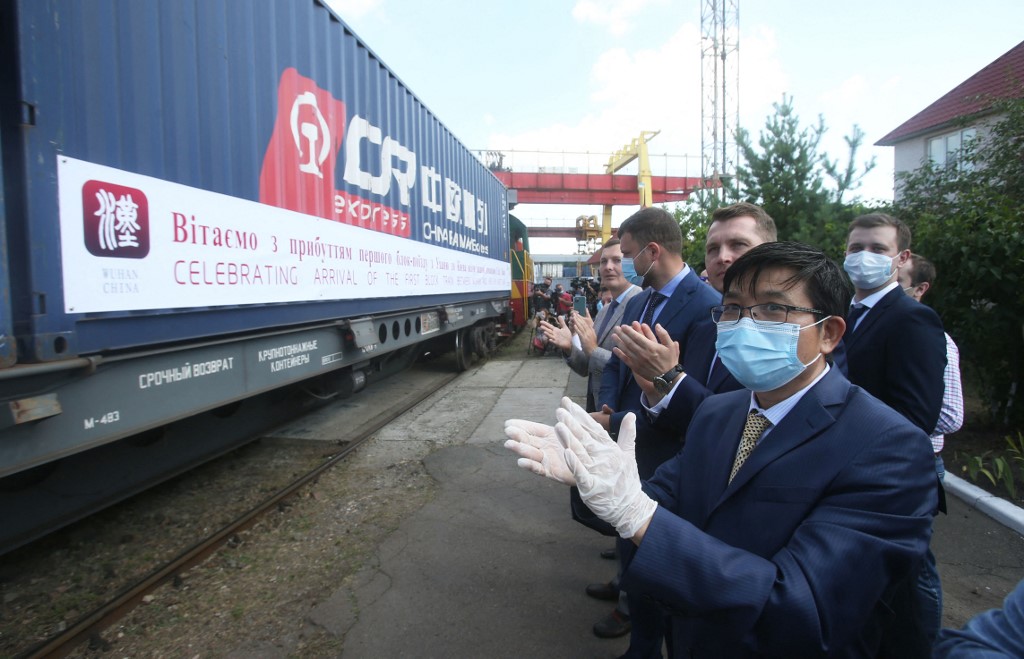China’s quasi-alliance with Russia is unlikely to bring it economic and geopolitical advantages, say economists, as the war in Ukraine escalates.
As Moscow stands to lean more heavily on China as a trading partner due to US, European Union and other sanctions, Chinese companies are likely to take market share from western suppliers.
“The conflict presents some opportunities for China,” Julian Evans-Pritchard, senior China economist at Capital Economics, said.
“With much of the world cutting off ties with Russia, China is in a strong position to negotiate long-run energy supply contracts on favourable terms.”
‘More Than Offset’
But, he added: “Any gains that China’s exporters might make selling to Russia – just 1.7% of global gross domestic product last year – will be more than offset by the negative impact the conflict will have on demand for Chinese-made goods elsewhere.”
Bilateral trade between China and Russia hit a record $150 billion in 2021 from about $80 billion in 2017, Barclays Bank economists Yingke Zhou and Jian Chang noted.
Russia is a major source of China’s oil, gas, coal and agriculture commodities. It is China’s second largest provider of crude oil, after Saudi Arabia, and third-largest gas provider, they added.
China and Russia announced new oil and gas deals worth an estimated $117.5 billion during the recent Winter Olympics.
Safe Haven Status
China’s Silk Road Fund plans to acquire a 10% stake in Russia’s petrochemical company Sibur, and China-based enterprises have acquired almost 30% of shares in Russia’s Yamal, the country’s first liquefied natural gas project north of the Arctic Circle.
In addition, Chinese yuan’s status as a safe haven currency is gaining traction again thanks to Russia, according to Nathan Chow, a senior economist at DBS.
“The yuan’s share in Russia’s forex reserves jumped to 13.1% in 2021 from a mere 0.1% in 2017, while its US dollar holdings fell to 16.4% from 46.3%, correspondingly.”
Evans-Pritchard said Russian banks won’t have too much trouble getting their hands on yuan to pay for imports since the country currently runs a trade surplus with China.
“Even if this were to swing into deficit, the Central Bank of Russia has $81 billion worth of yuan in foreign exchange reserves that it could make available to the country’s banks,” Evans-Pritchard said.
Important Ukraine Ties
However, Ukraine is also an important commodity provider to China. About 30% of China’s maize in 2020 came from Ukraine, along with large quantities of sunflower oil and iron ore.
Both Russia and Ukraine have become important parts of China’s Belt and Road Initiative. A freight train line running from Wuhan to Kyiv has already been disrupted.
At the same time, China and Ukraine signed an agreement in 2020 to strengthen cooperation in areas including the financing and construction of infrastructure projects.
According to China’s commerce ministry, newly signed contracts by Chinese enterprises in Ukraine have exceeded $2 billion in value for two consecutive years.
‘Lose-Lose Situation’
“China is in a lose-lose situation with respect to Ukraine,” Elizabeth Wishnick, a senior research scientist at CNA, a US-based non-profit research and analysis organisation, told the South China Morning Post.
“If a Russian puppet state results from this conflict, Chinese companies will face sanctions and there will be self-imposed limits to business activity and intergovernmental ties, as in Crimea.”
Already, China’s largest state-owned banks are restricting financing for purchases of Russian commodities in the face of sanctions.
Industrial & Commercial Bank of China’s offshore units have stopped issuing dollar-denominated letters of credit for purchases of Russian commodities ready for export, DBS noted.
Nick Marro, lead analyst for global trade at The Economist Intelligence Unit, noted: “It’s conceivable that Chinese companies who operate in – or have asset exposure to – the Russian market could see themselves targeted by US or other Western measures, including in sensitive sectors such as technology.”
- George Russell
READ MORE:
How Russia’s Ukraine Invasion Has Hit World Markets
Taiwan Says Ukraine Won’t Seriously Impact Chip Supply Chain
Ukraine Invasion Resets Priorities for Asian Central Banks
























